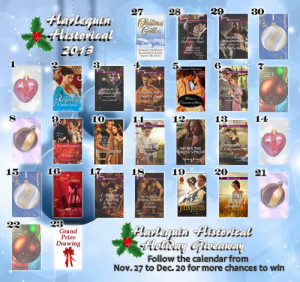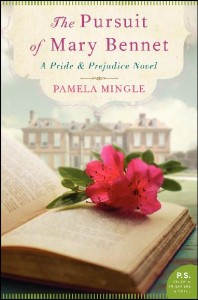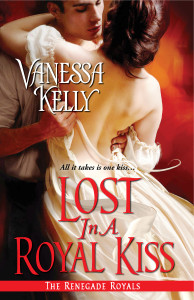 I’m delighted to welcome Vanessa Kelly to the Riskies today, with a contest to win an ARC of the first book in her Renegade Royals series, Secrets for Seducing a Royal Bodyguard. The novella Lost in A Royal Kiss–just released— introduces the series, in which readers are transported to the court of King George III, where a London street urchin unwittingly plays Cupid, ushering in a new era—and ultimately a new kind of royal…
I’m delighted to welcome Vanessa Kelly to the Riskies today, with a contest to win an ARC of the first book in her Renegade Royals series, Secrets for Seducing a Royal Bodyguard. The novella Lost in A Royal Kiss–just released— introduces the series, in which readers are transported to the court of King George III, where a London street urchin unwittingly plays Cupid, ushering in a new era—and ultimately a new kind of royal…
Welcome, Vanessa! What’s the premise of the Renegade Royals series?
 Thank you for hosting me on Risky Regencies, Janet. I’m very happy to be here!
Thank you for hosting me on Risky Regencies, Janet. I’m very happy to be here!
The basis for the series was a tidbit of information in a book about the daughters of King George III. Queen Charlotte had taken in a boy as charity case to be raised as a companion to the royal princes. It was a misguided impulse since the Prince of Wales, for one, resented the unfortunate child. I found that historical snippet intriguing. What would life be like for a boy of humble origins raised with royalty and yet never truly a part of their world? And where in life did he end up?
In my series, this boy became Dominic Hunter, who grows up to be a magistrate, a spymaster, and a trusted liaison to the Court of St. James. But Dominic has never forgotten the ill-usage he suffered in his youth, and the bad behavior of the royal princes continues to irk him. For one thing, they tend to scatter the landscape with illegitimate children, some lacking a proper name or place in the world. So Dominic decides to track down these offspring who are royal in everything but name. He does everything he can to help them find their rightful places in society and make good marriages.
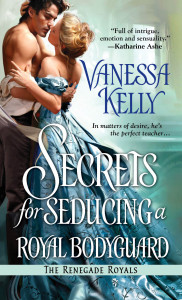 Lost in a Royal Kiss is set in 1786, but the first of the Renegade Royals series, Secrets for Seducing a Royal Bodyguard (January 2014), is set in 1814. What do you find most interesting in the differences between these two periods almost thirty years apart?
Lost in a Royal Kiss is set in 1786, but the first of the Renegade Royals series, Secrets for Seducing a Royal Bodyguard (January 2014), is set in 1814. What do you find most interesting in the differences between these two periods almost thirty years apart?
One interesting difference was in the way the royal court conducted itself. King George III and Queen Charlotte lived modestly, by royal standards, preferring a simple life and a more relaxed protocol at Windsor or Kew to a grand court scene in London. They enjoyed country pursuits and a life that revolved around family entertainments. This dismayed many courtiers, who found life at Kew Palace or Windsor to be boring and lacking in grandeur. Of course when the king fell ill there were even more restrictions, since the queen and her daughters all but lived in seclusion at Kew Palace.
Under the Prince Regent, however, court life was a great deal more extravagant and lively, often to the point of dissipation. But for all his faults, the Regent was a great patron of the arts and architecture, a legacy we see today in structures like the Royal Pavilion at Brighton. George III, often referred to as Farmer George, would not have approved.
Another significant change was with clothing. Georgian attire was quite different from Regency attire: more ornately decorated and with rich materials, particularly for the men. Long hair, wigs, powder…styles changed dramatically under the influence of men like Beau Brummel.
I too was introduced to the Regency by the books of Georgette Heyer, and you and I both read Regency Buck as our first. Do you still like to read/re-read Heyer and do you think she’s stood the test of time? What’s your favorite?
I re-read Georgette Heyer on a regular basis. She’s my go-to author when I’m sick or in need of a little comfort reading. I absolutely think her books stand the test of time, although I laugh now at all the exclamation points she uses—I never thought about things like that until I started writing my own books. My favorites are The Grand Sophy and Arabella. Such witty, entertaining books!
What do you love about the Regency?
The clothing, the architecture, and the absolute gusto for life in that era—Regency folk really knew how to have a good time, sometimes to an insane degree.
Hate about the Regency?
The profoundly disturbing levels of poverty, especially in the cities, and the crime rate. Life for the poor was incredibly grim, and their treatment by the middle and upper classes was often callous beyond belief. The way the Irish were treated was also horrible, although that had been going on for a very long time.
You have an alterego, V.K. Sykes, the combined writing genius of you and your husband. What’s your writing process? Do you find it difficult to switch gears?
Thank you for calling us geniuses! The V.K. Sykes books are contemporary romance or romantic suspense so it can be a bit of a challenge to get into the headspace. Fortunately, I don’t write the first drafts for those books. I do the revisions and the editing, and I write all the sex scenes (hubby just can’t seem to bring himself to do that). We rarely work on the same book at the same time, which is a good way to avoid wrangling over specific elements. Whoever is working on the book has ownership over it. It’s a process that is surprisingly stress-free.
What’s the last great book you read?
The Ape Who Guards the Balance, by Elizabeth Peters. I had read the first few books in the Amelia Peabody mystery series back in college, but I re-discovered them a few months ago. I’ve been tearing through them—they’re so skillfully written and the characters are fabulous. The books are witty and smart, and I love the setting and the archaeological background. Amelia Peabody and her family are the best kind of brain candy.
What’s next for you?
I’m finishing up the second novella in The Renegade Royals before moving on to book three in the series. My husband and I are also working on a new contemporary romance series for Grand Central—small town romances set on an island off the coast of Maine. That will be out in 2015.
Vanessa is giving away an ARC of Secrets for Seducing a Royal Bodyguard as a prize today. She’s told us what she loves and hates about the Regency–to enter the contest, share what you love and hate about the period, and help spread the word!
a Rafflecopter giveaway
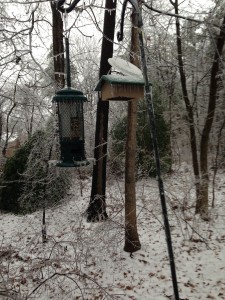 Last week I discoursed (i.e. complained) about dipping temperatures and the arrival of winter weather. Lest you think Virginia has gone into another Little Ice Age, we had temperatures near 70 F last week. This past Sunday, though, winter returned.
Last week I discoursed (i.e. complained) about dipping temperatures and the arrival of winter weather. Lest you think Virginia has gone into another Little Ice Age, we had temperatures near 70 F last week. This past Sunday, though, winter returned.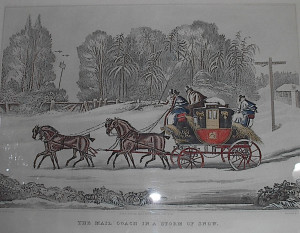 In the Regency, that is what people did in winter weather. They stayed at home and stayed as dry and warm as they could. Of course, not everyone could do that. Coaches did get caught in storms.
In the Regency, that is what people did in winter weather. They stayed at home and stayed as dry and warm as they could. Of course, not everyone could do that. Coaches did get caught in storms. If you are snowbound today (or even if you aren’t!) come to the Harlequin.com’s Holiday Open House. Today the Historical Authors are hosting a Holiday Ball. Come and see what refreshments are offered and what heroes are waiting to ask you to dance. There’s a chance to win prizes, too!
If you are snowbound today (or even if you aren’t!) come to the Harlequin.com’s Holiday Open House. Today the Historical Authors are hosting a Holiday Ball. Come and see what refreshments are offered and what heroes are waiting to ask you to dance. There’s a chance to win prizes, too!




